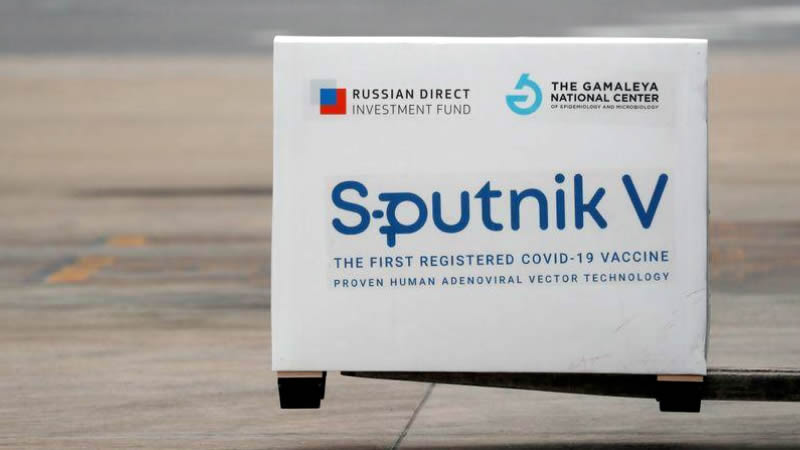PTC’s net earnings down 6% QoQ, 21% YoY: High opex and rise in taxation dragged PTC consolidated earnings by 21% YoY during 1QFY11. Net profit was also down 6% on QoQ basis to PKR2.4bn (EPS: PKR0.48).
Ufone’s contribution in total revenue mix at 45% in 1QFY11: Steady rise in the revenue of PTC’s subsidiary – Ufone not only resulted in 4% YoY growth in total revenue but also increased its contribution to the pie to 45% in 1QFY11, up 5pps YoY. Cellular arm’s total average subscribers rose by 3% YoY and 5% QoQ during 1QFY11. On the other hand, standalone revenue of the company was down 4% YoY.
Surge in salaries caused opex to rise by 11% YoY: The GoP announced 50% increase in salaries of the government employees, which also pushed PTC’s management to raise salaries and compensation of its employees accordingly and resulted in 11% YoY increase in the opex.
Other income and finance cost down 19% YoY and 65% YoY respectively: Other income was down by 19% YoY, owing to ~PKR9.0bn reduction in short term investments & cash balances. However, 65% YoY decrease in the financial charges due to retirement of PKR7.0bn long term loan supported the declining profitability trend to some extent.
FY11E EPS stands at PKR2.43, June-2011 PT at PKR25/share: Our full year FY11E EPS for PTC stands at PKR2.43 and June-2011 PT at PKR25/share. At current levels, the scrip provides upside potential of 26% to our PT and is trading at FY11/FY12 P/E of 8.2x/6.5x. The scrip also offers FY11E dividend yield of 9%. BUY!
Ufone’s contribution in total revenue mix at 45% in 1QFY11
Pakistan Telecommunication Company Limited’s (PTC) standalone revenues faced attrition of 4% YoY during 1QFY11 mainly owing to decline in domestic revenues as well as international voice telephony segment. On QoQ basis, however, PTC’s revenues remained flat. Ufone continued to support top-line growth, as its revenue surged by 17% YoY to PKR11.5bn during 1QFY11 compared to PKR9.8bn in 1QFY10. Consequently, consolidated revenues of the company rose by 4% YoY. Cellular arm’s contribution to the total revenue pie resultantly increased to 45% in 1QFY11, up 5pps YoY. Ufone’s total average subscribers rose by 3% YoY and 5% QoQ during 1QFY11 to 20.2mn and its monthly ARPUs went up to PKR190 compared to PKR167 in the same period last year.
Surge in salaries caused opex to rise by 11% YoY
GoP in its FY11 budget, announced 50% increase in salaries for the government employees, which also pushed PTC’s management to raise salaries and compensation of its employees accordingly. For regular employees, salaries were increased by around 30% whereas contractual employees got 9% annual raise. Moreover, increased marketing campaigns for new packages for both fixed line and broadband caused 7% YoY increase in Admin and Selling & Marketing expenses during the period. Total operating expenses, hence, were up 11% YoY during 1QFY11, shrinking operating margins to 19% as against 25% in 1QFY10.
Other income and finance cost down 19% YoY and 65% YoY respectively
Other income, further depressed the bottom-line of the company, as it declined by 19% YoY, owing to around PKR9.0bn reduction in short term investments & cash balances. However, due to retirement of PKR7.0bn long term loan by the cellular arm during the quarter, financial charges were down 65% YoY, hence, supporting the declining profitability trend to some extent.
FY11E EPS stands at PKR2.43, June-2011 PT at PKR25/share
We expect the cellular segment of the company to continue to drive revenue growth in future. Moreover, broadband’s share is also expected to rise, given new and cost effective packages being offered by PTC. Our full year FY11E EPS for PTC stands at PKR2.43 and June-2011 Price Target at PKR25/share. At current levels, the scrip provides upside potential of 26% to our PT and is trading at FY11/FY12 P/E of 8.2x/6.5x. The scrip also offers FY11E dividend yield of 9%. BUY!
Economic & Political News
Five leading export sectors: FBR to slap 15 percent ST on power, gas consumption
FBR would impose 15% sales tax on the electricity and natural gas consumption by thousands of manufacturing units in five leading export sectors including textile, leather, surgical, carpets and sports goods after introduction of the General Sales Tax Bill 2010. The Board will rescind notifications and Sales Tax General Orders (STGOs) to withdraw sales tax zero-rating facility on the electricity and natural gas consumption by five major export sectors following approval of the General Sales Tax Bill by the Parliament.
Stock exchanges: flood surcharge to cover CGT transactions
FBR Member, Direct Tax Policy, Israr Rauf said that capital gain tax (CGT) on investors of stock exchanges would be subjected to 10% flood surcharge under the Finance Amendment Bill 2010. All withholding forms of taxes would also be subject to flood surcharge. When the investors of stock exchange would file their income tax returns, they would specify the 10% surcharge. The returns would reflect the proposed surcharge on the returns to be filed by the stock exchanges.
Analyst Certification:
The research analyst(s) denoted AC on the cover of this report, primarily involved in the preparation of this report, certifies that (1) the views expressed in this report accurately reflect his/her personal views about all of the subject companies/securities and (2) no part of his/her compensation was, is or will be directly or indirectly related to the specific recommendations or views expressed in this report.
Disclaimer
The report has been prepared by Elixir Securities Pakistan (Pvt.) Ltd and is for information purpose only. The information and opinions contained herein have been compiled or arrived at based upon information obtained from sources, believed to be reliable and in good faith. Such information has not been independently verified and no guaranty, representation or warranty, expressed or implied is made as to its accuracy, completeness or correctness. All such information and opinions are subject to change without notice. Descriptions of any company or companies or their securities mentioned herein are not intended to be complete and this document is not, and should not be construed as, an offer, or solicitation of an offer, to buy or sell any securities or other financial instruments.
Research Dissemination Policy
Elixir Securities Pakistan (Pvt.) Ltd. endeavors to make all reasonable efforts to disseminate research to all eligible clients in a timely manner through either physical or electronic distribution such as mail, fax and/or email. Nevertheless, not all clients may receive the material at the same time.
Company Specific Disclosures
Elixir Securities Pakistan (Pvt.) Ltd. may, to the extent permissible by applicable law or regulation, use the above material, conclusions, research or analysis in which they are based before the material is disseminated to their customers. Elixir Securities Pakistan (Pvt.) Ltd., their respective directors, officers, representatives, employees and/or related persons may have a long or short position in any of the securities or other financial instruments mentioned or issuers described herein at any time and may make a purchase and/or sale, or offer to make a purchase and/or sale of any such securities or other financial instruments from time to time in the open market or otherwise. Elixir Securities Pakistan (Pvt.) Ltd. may make markets in securities or other financial instruments described in this publication, in securities of issuers described herein or in securities underlying or related to such securities. Elixir Securities Pakistan (Pvt.) Ltd. may have recently underwritten the securities of an issuer mentioned herein.
Other Important Disclosures
Foreign currency denominated securities is subject to exchange rate fluctuations which could have an adverse effect on their value or price, or the income derived from them. In addition, investors in securities such as ADRs, the values of which are influenced by foreign currencies effectively assume currency risk. Foreign currency denominated securities is subject to exchange rate fluctuations which could have an adverse effect on their value or price, or the income derived from them. In addition, investors in securities such as ADRs, the values of which are influenced by foreign currencies effectively assume currency risk.
Contributed By













